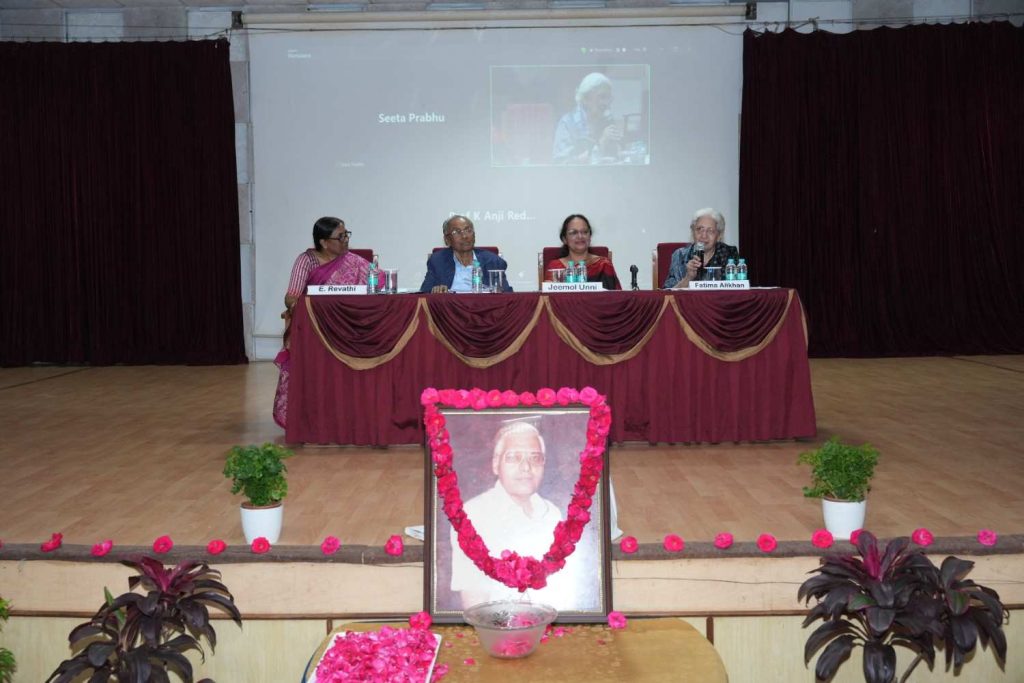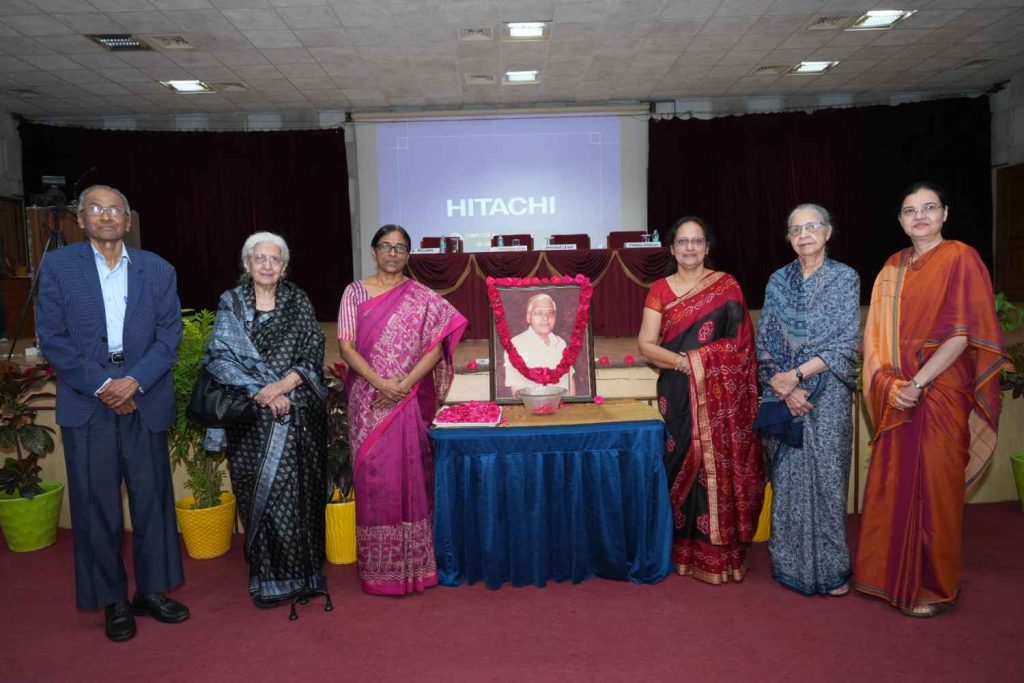

19th Dr Waheeduddin Khan Memorial Lecture, Centre for Economic and Social Studies (CESS), Hyderabad, 25 November 2025
The Centre for Economic and Social Studies (CESS) organised the 19th Dr Waheeduddin Khan Memorial Lecture on 25 November 2025 at the B.P.R. Vittal Auditorium, CESS, Hyderabad.
The programme commenced with a floral tribute to Dr. Waheeduddin Khan, remembering his significant academic contributions and his pivotal role in strengthening CESS.
Prof. E. Revathi, Director, CESS, welcomed the gathering and briefly reflected on the significance of the Memorial Lecture series, initiated in 1986 to commemorate Dr. Khan’s legacy. She introduced the guests on the dais: Prof. J. Mahender Reddy, Founder Member of CESS; Chair of the session, Prof. Fatima Alikhan, Member of the Board of Governors of CESS; and the speaker, Prof. Jeemol Unni, Professor of Economics at the Amrut Mody School of Management, Ahmedabad University.
Prof. Fatima Alikhan began the session with her introductory remarks, highlighting the relevance of the topic in the current socio-economic context. She then invited Prof. Jeemol Unni to deliver the lecture titled “Entrepreneurship in the Digital Era: Platform Startups and Gender Dynamics.”
Prof. Unni began by situating her talk in the context of India’s current employment landscape, characterised by high unemployment among educated youth and a saturated formal labour market. She underscored the role of small and medium enterprises, innovation, and an “entrepreneurial spirit” in creating new opportunities and supporting economic growth.
She then presented the conceptual foundations of the lecture, beginning with Schumpeter’s theory of entrepreneurship, which was further expanded by 2025 Nobel Prize-winning economists, particularly the idea of ‘creative destruction’, where old technologies are replaced by innovations that drive economic change. She highlighted that digital entrepreneurship differs significantly from traditional entrepreneurship, as digital technologies have widened knowledge networks and expanded customer markets. In her study, she classified tech companies into transactional platforms, non-transactional platforms, and non-platforms. With this background, she posed an important research question: Is the valuation of the companies driven more by economic performance or by future growth potential?
Drawing on empirical data from tech startups in Pune and Ahmedabad, she argued that contemporary entrepreneurship embodies the Schumpeterian model of creative destruction, with digital platforms emerging as powerful micro-entrepreneurial spaces. Her findings suggest that the valuation of platform companies is driven more by future growth potential than by current economic performance, and that transactional platforms receive higher valuation and funding than other tech companies, despite facing loses on operational front.
She further discussed the gender dynamics of startup ecosystems, noting that women-founded platform companies receive lower funding and valuation. She emphasised that these hypotheses require deeper investigation and hold significant potential for future research on digital entrepreneurship and gender.
Following the lecture, the floor was opened for discussion. Faculty members, researchers, and students raised insightful questions, leading to a rich and engaging exchange on digital entrepreneurship, platform work, and gendered labour dynamics.
As part of the programme, CESS presented the Dr. Waheeduddin Khan Best PhD Thesis Award – 2025. The awardees were:
- Dr O. Pranathi (Non-Economics)
- Dr M. Sri Vidhya (Economics)
The programme concluded with a formal Vote of Thanks by Prof. E. Revathi, who expressed gratitude to the speaker, chair, participants, and the organising team for making the event a success.
